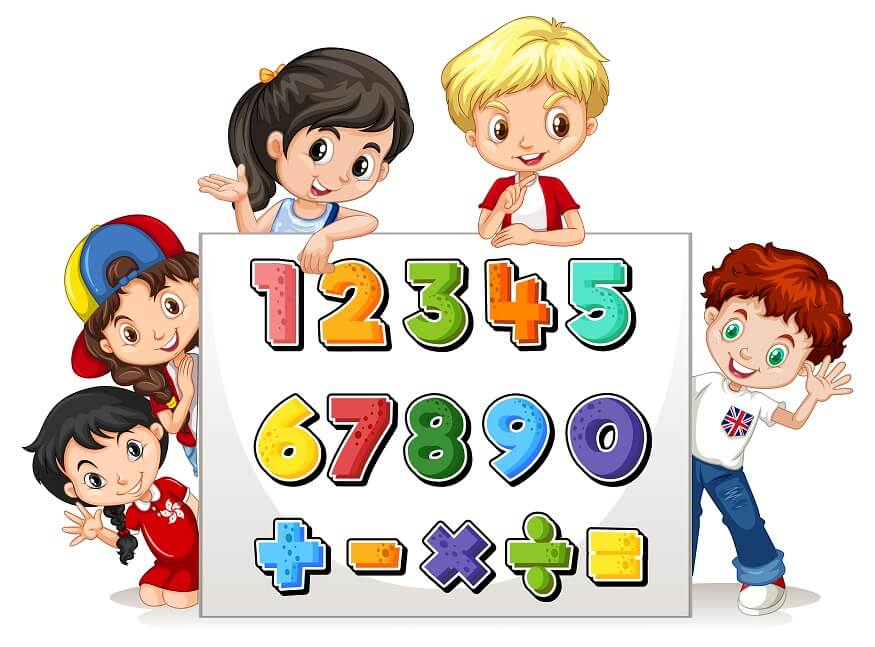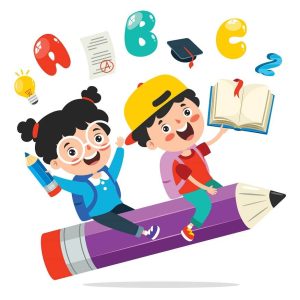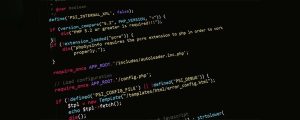Simple Ways for Boosting Numeracy skills for Primary School Students

We make our kids start playing, but did you know playtime can also be a powerful tool for boosting numeracy skills in primary school students? In this guide, we explore fun and easy ways to improve numeracy skills through everyday activities. From incorporating numbers into games to using basic counting during play, we’ll show you that learning math doesn’t have to be boring. Join us on a journey where learning and play go hand in hand, creating a foundation for strong numeracy skills that will benefit your child both in and out of the classroom. Let’s make math an enjoyable adventure for our young learners!
Understanding Numeracy skills
Numeracy skills play a vital role in a child’s educational journey, encompassing the ability to comprehend and manipulate numbers. These skills go beyond basic arithmetic, forming the foundation for problem-solving, decision-making, and mathematical reasoning throughout life.
In the primary school years, it’s crucial to instill a clear understanding of the meaning of numeracy. At their core, numeracy skills involve more than just counting or memorising multiplication tables; they involve interpreting and using numerical information in various contexts. This understanding is pivotal for educators and parents alike as they guide young learners towards a comprehensive grasp of mathematical concepts.
Tips and Strategies for Teaching Numeracy skills
Teaching numeracy skills to primary school students requires thoughtful and effective strategies. Following are some important tips for teaching numeracy skills:
- Real-world Connections:
- Visual Reinforcement:
- Consistent Practice:
- Adapt to Learning Styles:
- Positive Reinforcement:
Start by establishing a connection between mathematical concepts and real-world scenarios. Show students how numbers play a role in everyday activities, such as measuring ingredients while cooking or counting items during a shopping trip.
Utilise visual aids to enhance comprehension. Charts, diagrams, and illustrations can make abstract numerical concepts more tangible and easier to grasp for young minds.
Consistency is key to building numeracy skills. Integrate short and regular practice sessions into the daily routine to reinforce concepts and promote familiarity with numbers over time.
Recognise and cater to the diverse learning styles of students. Some may benefit more from visual aids, while others might prefer hands-on activities. Adapt your teaching methods to accommodate these differences.
Celebrate small victories to boost confidence. Positive reinforcement fosters a supportive learning environment, encouraging students to view numeracy challenges as opportunities for growth.
Strategies to Improve Numeracy skills
To go beyond teaching and truly focus on improving numeracy skills, consider the following strategies:
- Progressive Learning:
- Hands-On Activities:
- Peer Collaboration:
- Adapt to Individual Progress:
- Consistent Practice:
Break down complex concepts into manageable steps is one of the best strategies to improve
numeracy skills. By introducing one concept at a time, you ensure that students build a strong foundation before moving on to more challenging
topics.
Incorporate hands-on activities that involve manipulation of objects. This tactile approach
helps solidify numerical concepts and enhances retention.
Foster a collaborative learning environment where students work together to solve problems. Peer collaboration not only reinforces numeracy skills but also promotes communication and teamwork.
Understand that students progress at different rates. Tailor your teaching approach to accommodate individual learning speeds, providing additional support or challenges as needed.
Reinforce the importance of regular practice. Just like any skill, numeracy improves with consistent effort. Establish a routine that includes brief yet frequent numeracy exercises.
Improving Numeracy skills
Improving numeracy skills is an ongoing process that requires patience and dedication from both educators and students. Here are some effective ways to foster continual improvement:
- Daily Math Routines:
- Celebrate Achievements:
- Real-Life Applications:
- Use Technology Wisely:
Establish a daily math routine that includes short exercises or challenges. Consistent practice reinforces concepts and builds confidence over time.
Acknowledge and celebrate small achievements regularly. Positive reinforcement creates a supportive learning environment, motivating students to tackle more complex numerical tasks.
Emphasise the practical applications of numeracy skills in real-life situations. Whether it’s calculating change at a store or measuring ingredients for a recipe, connecting math to everyday activities reinforces
its relevance.
Integrate educational apps and online resources to make learning interactive and engaging. Educational technology can provide additional practice opportunities and cater to different learning styles.
Activities to Improve Numeracy skills
Engaging activities are a valuable complement to formal teaching strategies. Here are some fun activities to improve numeracy skills in primary school students:
- Math Scavenger Hunt:
- Math Puzzles and Riddles:
- Storytelling with Numbers:
- Peer Collaboration:
Foster critical thinking skills by organising a math scavenger hunt where students solve numerical problems to discover hidden clues.
Incorporate puzzles and riddles into the learning process to encourage problem-solving and critical thinking.Interactive Games:
Transform learning into a game through board games or online challenges. Making numeracy enjoyable contributes to a positive attitude towards math.
Integrate storytelling into math lessons by creating simple narratives that involve mathematical problems. This approach makes learning fun and contextual.
Encourage students to collaborate with their peers in solving numerical problems. This not only reinforces numeracy skills but also promotes communication and teamwork.
Understanding the numeracy skills meaning is fundamental to guiding primary school students towards mathematical proficiency. Implementing simple tips and strategies for teaching, along with incorporating enjoyable activities, creates a well-rounded approach to improving and reinforcing these essential skills. We at Billabong High International School, by focusing on consistency, adaptability, and positive reinforcement, contribute to a positive and lasting impact on students’ numeracy skills.













